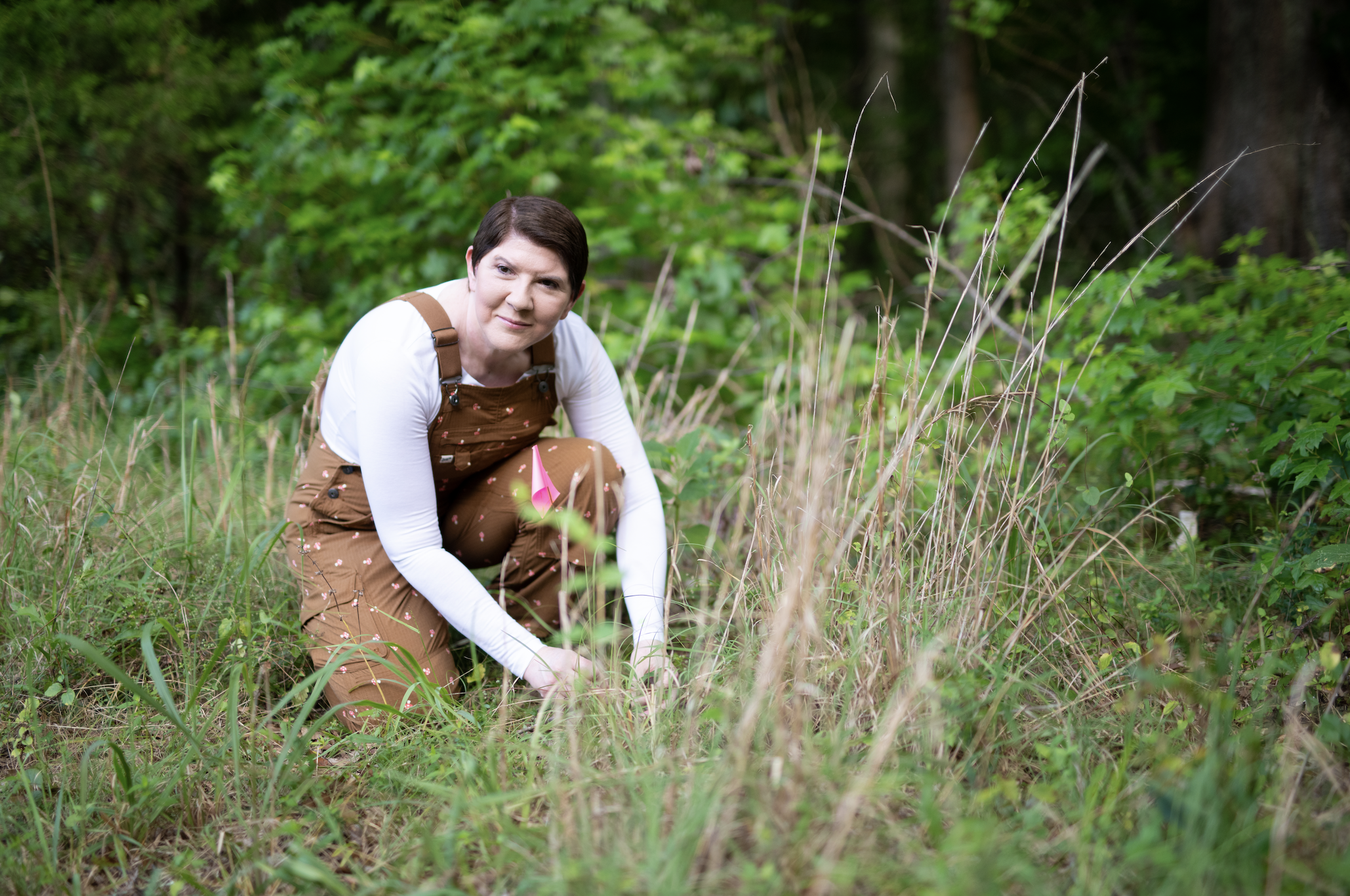Kym Martin Saves Monarchs
Monarch butterflies (Danaus plexippus) are beautiful wonders of North America. During their southerly migration in late summer, we welcome them to our campus, where they can feed at two waystations filled with milkweed. Kym Martin is a monarch enthusiast who manages the two stations and has big plans for their future!
Butterfly Milkweed (Asclepias tuberosa) is one of 13 native species of milkweed in Tennessee that supports monarch butterflies during their larval stage as an exclusive host plant. Although not as robust as other milkweed species, you can often find this species readily at nurseries to support monarch butterflies!
A software architect by day, Kym’s true passion lies in monarch butterflies and native gardening. Years ago, she began gardening as a tribute to her grandfather. Her initial frustration soon turned into deep admiration. Today, she is a certified Master Gardener who advocates for monarchs through outreach and her very own project, Magical Monarchs. Kym has been supporting the species for over 6 years through education, habitat restoration, community science, and tagging and tracking efforts.
“I love it because every time I’m out there, I get new volunteers, and they get excited [about monarchs]. Every chance I have to make someone excited about monarchs, it helps.” —Kym Martin
On our campus, Kym manages two waystations that support monarch butterflies. Each station is fitted with a combination of various milkweed species—Common, Swamp, Butterfly, and Aquatic (exclusive to pond). One small station sits by the Lower Pond near our Native Plant Nursery, and the other is a large clearing of four acres. Each month, volunteers come out to clear the sites of invasive and unwanted species so that beneficial plants can thrive. Volunteers also help with watering key plants to help them establish.
Kym stepped into her role as “matriarchal monarch” last year, and the program has since grown. The team cleared sweetgum trees (Liquidambar styraciflua) from the area and planted seed bombs. The seed bombs are a blend of milkweed species and other plants preferred by native pollinators. The team prioritizes Common Milkweed (Asclepias syriaca) and Swamp Milkweed (Asclepias incarnata) because both are a favorite of monarchs for their large size, especially Common! This year, the team received a grant for 300 young plants planted this spring. After clearing more saplings, they will send out seed bombs in November. In the meantime, Kym is growing milkweed and crafting seed bombs with fellow volunteers and master gardeners to send out 4,000+ every fall and spring.
Our Monarch Waystations still have more growing to do, but we are so excited for their future. Years from now, they will hold established fields of flowers that support swathes of pollinators on their journey. Kym intends to expand the effort into a citizen science project with research and programming. By recording monarch life stages and tagging individuals for migration, we will further promote monarch conservation.
We encourage you to join the effort in promoting monarch butterflies! Each month, we host a Monarch Waystation Volunteer Day to wrangle weeds and clear unwanted species so that milkweed and other pollinator plants can thrive. Kym also encourages you to reach out to her and learn more about monarch conservation at Magical Monarchs.







